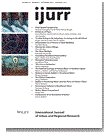Existing scholarship suggests that local transformation in reform-era China has been a process of decentralization of state power driving extractive local governments to pursue economic growth through rapacious land appropriation and producing many miserable landless villagers. This study puts forward an alternative perspective by arguing that local governance reforms in China to advance urban development should also be interpreted as a process of state building, whereby local government reshaped its governance strategy so as to mitigate potential social unrest and strengthen its political legitimacy in governing rapidly urbanizing areas. Based on intensive fieldwork in a periurban district in southern China, this research examines how the local state has heightened its control over urbanizing villages through its day-to-day governance practices and the pursuit of a complex policy agenda comprising social welfare provision, shareholding reforms and intervention in grassroots politics. The findings of this study shed new light on understanding local state transformation in periurban China and on explaining why the country still maintains tremendous urban growth despite incessant land disputes and numerous social tensions at different localities.

